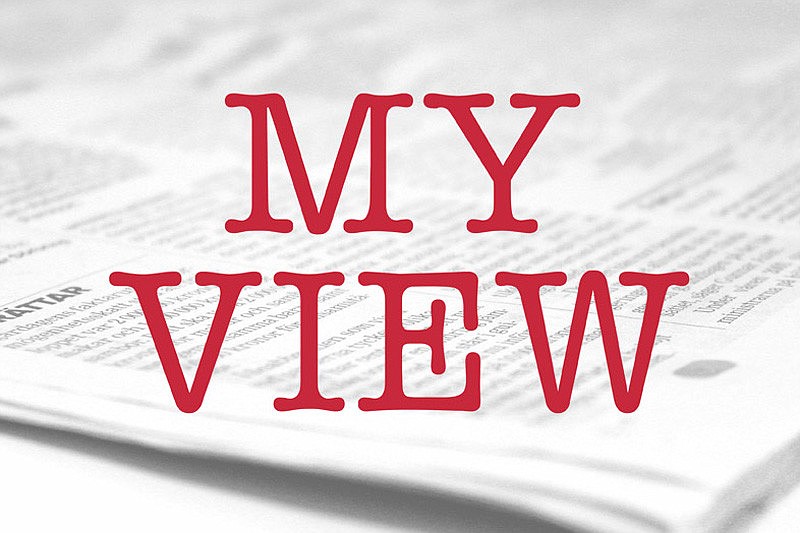- November 23, 2024
-
-
Loading

Loading

The lawsuit by the Florida Education Association and other public-sector unions against a new Florida law requiring a small pension contribution is truly educational.
The state has been far too generous with taxpayer money by providing free, full pensions to all employees, including teachers. The costs to the state and local municipalities to contribute to the state pension fund is a bankrupting element for governments during the recession.
So, the Legislature approved a budget this year that requires teachers and other government workers using the state retirement plan to contribute 3% of their pay toward their pension. For most everyone in the private sector, this has long been the case for pensions, and more so with tax-free personal retirement accounts such as 401(k) plans that require the employees to put in mostly, or all of, their own money.
Workers in the state pension fund have had a free ride toward retirement; the rest of the state’s workers have not. It had to come to an end.
But the Florida Education Association — the largest teachers union in the state — is suing to stop the increase, leading a group of other public-sector unions such as the AFL-CIO, the American Federation of State, County and Municipal Employees, the Service Employees International Union and the Fraternal Order of Police.
There are three important lessons to learn in this action.
Lesson one: entitlement mentality.
First, it shows how a mindset toward entitlement is part of human nature and the generosity of taxpayers in retirement benefits — which those same taxpayers do not enjoy — is completely unappreciated.
When was the last time a government worker, or government union, was actually thankful in a public way for the incredible largesse that has been part of his or its pension plans? But the moment this largesse is threatened, even in a minimal way, the response is anger and lawsuits.
There quickly develops an automatic entitlement to the benefit package that, for much of the private sector, is always in flux and only a fraction as abundant.
Lesson two: Who unions are.
Unions exist to get members higher pay, better benefits and job security — the latter of which often means making it difficult to get rid of crummy employees. That is the purpose of unions.
Unions do not exist to be a team member with management in government, nor to have any responsibility for the efficient operations of governments or companies. They are not supposed to be looking out for taxpayers or shareholders. If you are not a member of the union, it has no interest in your benefit one way or another, any more than a company does if you are not a customer.
This is true of teachers unions also. They never have and never will make children or education their top priorities. Teachers do. Teachers unions do not. Their role is that of unions. It is long past time that school boards and other government officials recognized that unions are not a friend or a team member. They are an adversary with completely different goals. As long as elected officials are confused on this point, union members will get great benefits, and taxpayers will shoulder the burden.
Lesson three: Threat of government unions.
Even though Florida is a right-to-work state, government unions have become so big — because, of course, government has become so big — that they wield enormous power with the political class that decides their pay and benefits.
For instance, when a school board needs to make some cuts, and most of the expense is in teachers and salaries, the board naturally must look there.
But any attempt to reign in costs through that method will bring out masses of placard-waiving teachers and kids on street corners, ginning up support for “education.”
These events are organized by government unions and not something that elected school board members want to see. Politicians hoping to get re-elected are frightened by groups of people on the street, or in a meeting, opposing a policy. They are further frightened by the amount of money government unions can pour into political campaigns through their PACs.
These three lessons should serve a purpose for the public and all elected officials. Recognize that unions are not your friend. Elected officials need to remember they are to defend and protect the treasury of taxpayer resources, not befriend unions.
At the state level, legislators and Gov. Scott ought to consider legislation banning government employees from unionizing. It sounds draconian, but it is not. They were not allowed to unionize until the 1950s (in Wisconsin first, and look at the disaster that has caused) and in the 1960s for federal employees. Since then, the cost of government and employee benefits has skyrocketed.
Meantime, if the Florida government unions prevail in the lawsuit, there will be a $1.2 billion gap opened in the state budget. This would need to be filled every year either by increasing taxes or cutting other services. That is the reality.
The time has come for teachers and other government workers to do what is done in the private sector — pay for their own retirement — and to defang the government unions.
Rod Thomson is editorial pages editor of the Observers and can be reached at [email protected].